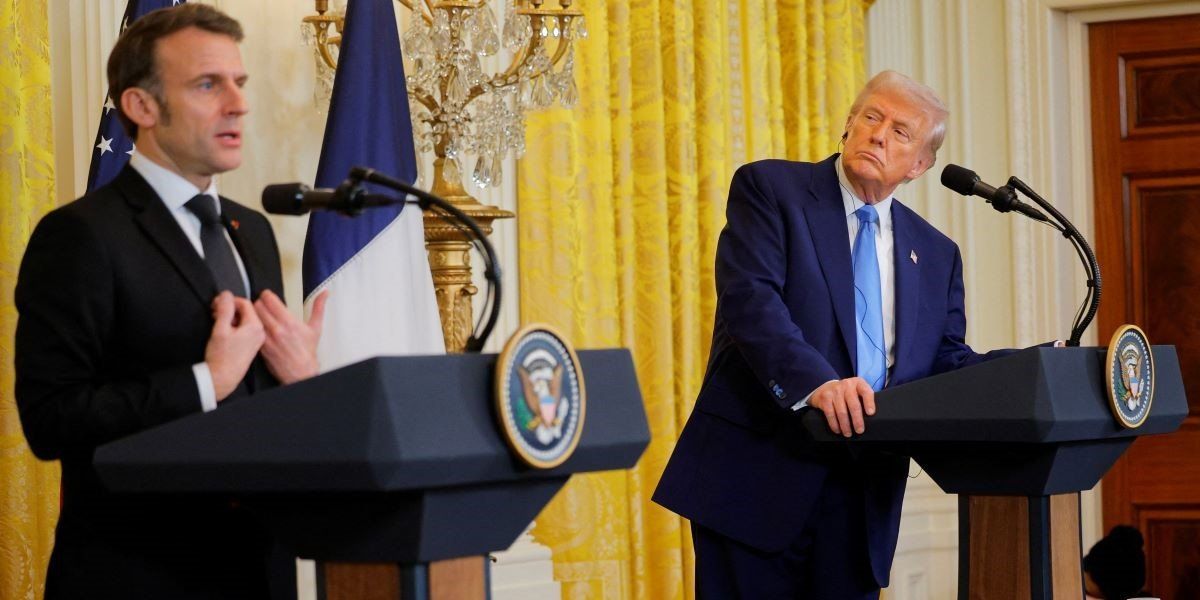The third anniversary of the Ukraine War came and went on Monday as the US is rapidly reorienting where it stands on the conflict. The tectonic shift was laid bare Monday in the UN General Assembly, where the US broke with European allies and opposed Ukraine’s resolution condemning Russian aggression and calling for the withdrawal of Russian troops from Ukraine. Instead, the US put forth a rival resolution calling for an end to the conflict without laying blame on Russia for starting it. Both resolutions were adopted.
Meanwhile, France’s President Emmanuel Macron met with Donald Trump in Washington on Monday in an attempt to realign the US and Europe. During the meeting, Trump declined to label Russian President Vladimir Putin as a dictator and incorrectly claimed that the US has spent three times more than Europe to support Ukraine. He is expected to brief EU leaders today, ahead of a potential defense summit on Sunday. Macron’s takeaway: A truce could be weeks away, but “should not be a surrender of Ukraine.” UK Prime Minister Keir Starmer is also expected to meet with Trump in Washington on Thursday to discuss Ukraine’s security.
Setting the record straight on funding: European countries, including the EU, have collectively exceeded America’s support, providing $138 billion in allocated aid compared to America’s $119 billion (though America maintains a slight edge in military assistance). When factoring in additional pending commitments, Europe’s lead increases further. However, nearly 90% of EU institutional financial support consists of loans (albeit with very favorable terms), while approximately 60% of American financial aid has been delivered as outright grants.
Excluding loans, the US has given $50.9 billion in aid to Ukraine, according to economists at the University of California Berkeley – or 0.25% of the federal budget in 2024, roughly what is spent on energy and maintenance for federal buildings.
Will Trump visit Moscow? Trump told Macron that he may visit Russia if peace negotiations succeed – which he suggested could happen within a matter of weeks. The visit would be the first for an American president in over 10 years and would be a boon for Putin on the global stage. The Russian president offered to sell rare earth minerals to the US on Monday night, including those from occupied territories in Ukraine, emphasizing his message toTrump that financial opportunities exist in Russia.
